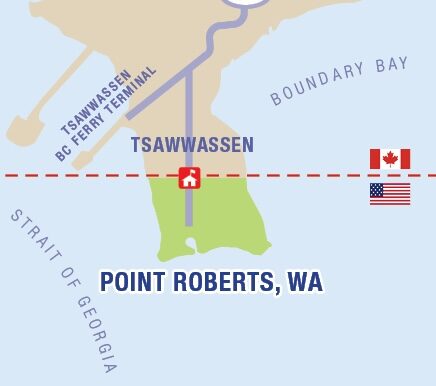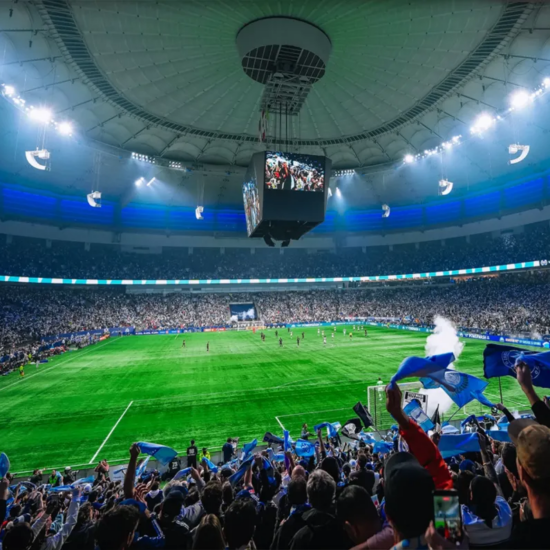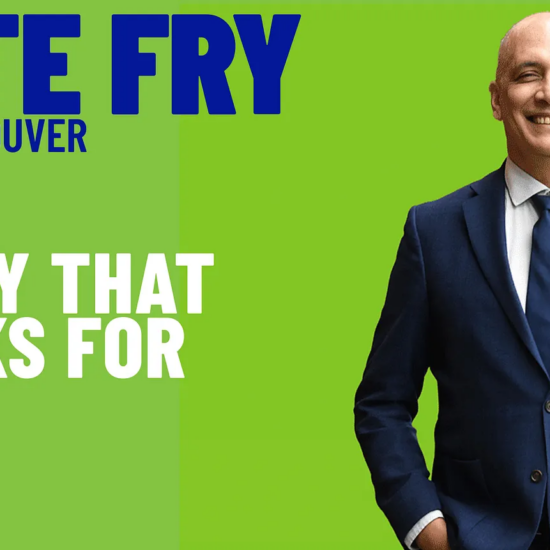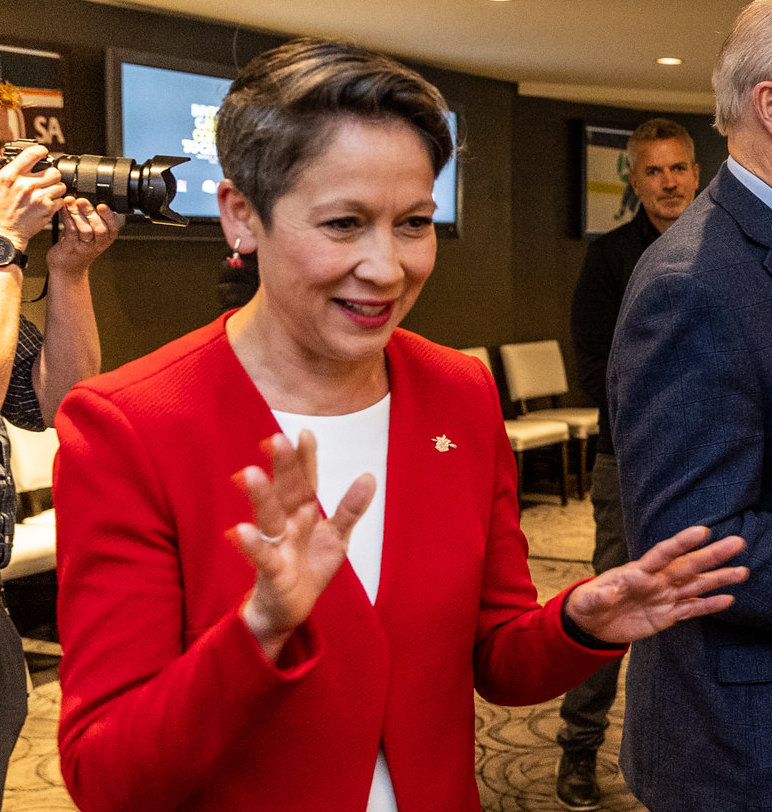
Bob Mackin
The B.C. NDP government has set an Aug. 15 deadline for the Canadian Olympic Committee to make its case for provincial government support for another Vancouver Winter Olympics.
The COC is acting as the Vancouver 2030 bid committee, with the blessing and input of the Four Host First Nations and the mayors of Vancouver and Whistler.
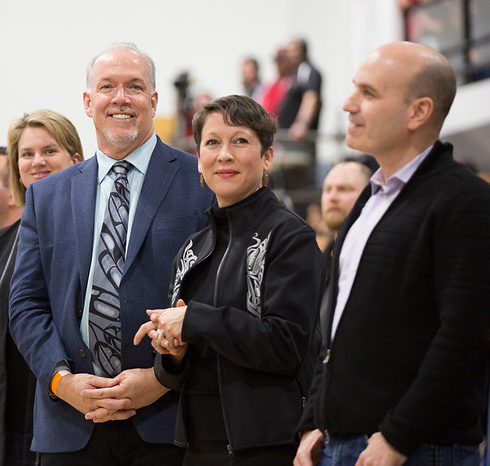
Nathan Cullen (right) with John Horgan and Melanie Mark in 2017 (BC NDP)
Salt Lake City, the 2002 host, and Sapporo, the 1972 host, are also exploring bids. The International Olympic Committee plans to pick the 2030 location in May 2023.
The provincial government had previously told the bid exploration team that it would not underwrite the 2030 Games. Melanie Mark, the Minister of Tourism, Art, Culture and Sport, wrote a June 24 letter to COC president Tricia Smith, seeking what amounts to a preliminary business plan.
The COC had been planning to make a formal proposal to B.C. and federal treasury boards this fall. It wants to confirm government support by November, to be ready when the IOC is expected to open negotiations with bidders in December.
“Consideration of hosting major international sporting events requires significant time and resources by all parties,” said Mark’s letter, which was provided by a source. “The experience in preparing for the 2010 Games, the magnitude of an Olympic and Paralympic Games is very large and complex, and requires careful consideration by all levels of government and host First Nations. As you will appreciate our environment has changed since 2010, particularly in relation to the risks and challenges created by pandemics, evolving domestic and international security threats, and the effect of global climate change.”
Mark wants a “clearer understanding” of how the bid and potential organizing committee would be funded and governed. Specifically, she wants to know whether host communities and first nations would share costs, risks, benefits and legacies. Mark also wants to know whether the organizing committee would be self-sustaining with private funding and to what extent the IOC would fund its activities and assume the liability for risks.
While Mark wants a plan to minimize the burden on taxpayers, she also wants to know how B.C. could benefit from IOC-sanctioned pre-Games events.
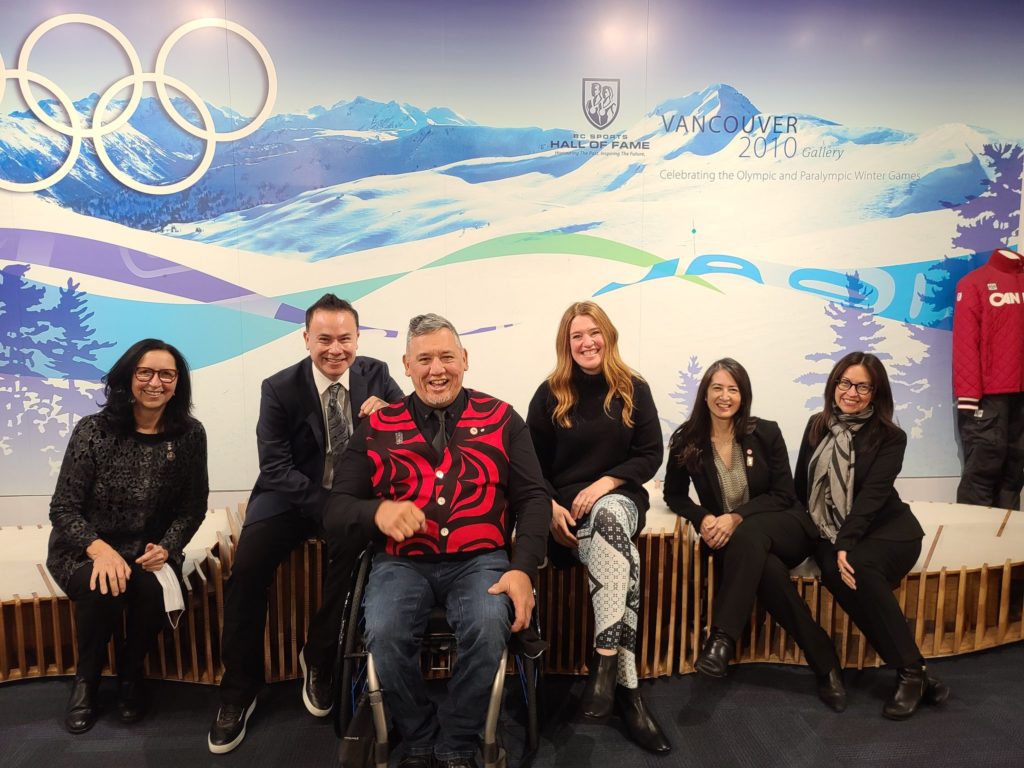
Canadian Olympic Committee president Tricia Smith (left) and Four Host First Nations executive director Tewanee Joseph (second from left) at the Dec. 10 bid exploration announcement (Twitter/Tewanee Joseph)
“As the province focuses on economic recovery from the global pandemic, we consider support for such events within the context of benefits to communities and the province’s priorities and financial and operational capacity,” said Mark’s letter.
Mark referenced the recent awarding of the 2025 Invictus Games to Vancouver and Whistler and the naming of Vancouver as one of 16 cities for the 2026 FIFA World Cup. The latter is expected to cost taxpayers up to $260 million.
The timing of Mark’s letter is notable. June 24 was two days after Premier John Horgan stopped the unpopular $789 million, 2030-scheduled rebuild of the Royal B.C. Museum and four days before Horgan announced he would resign as premier when the NDP chooses a new leader this fall.
It is the latest curveball for the bid, which is facing economic and geopolitical headwinds and the uncertainty of this fall’s municipal elections. The COC had already told partner municipalities and First Nations to refrain from holding a referendum this year. In April, Vancouver Coun. Colleen Hardwick, the TEAM for a Livable Vancouver mayoral candidate, had unsuccessfully proposed a bid plebiscite for the Oct. 15 civic election ballot. Nobody on council agreed to second her motion.
The Vancouver and Whistler councils are expected to decide this month whether to carry on with the bid.
The COC released its 26-page feasibility study on June 14 in conjunction with the Four Host First Nations, but it did not include a cost estimate for the proposed Feb. 8-24, 2030 Olympics and March 8-17, 2030 Paralympics. COC lobbyist Mary Conibear called the cost estimate a “complex calculation” and said it would be released in mid-July.
The lobbyist registry shows Conibear communicated May 16 with Assistant Deputy Finance Minister Doug Foster and Assistant Deputy Tourism Minister Kim Lacharite. The COC is asking the government for provincial staff resources to build the bid book.
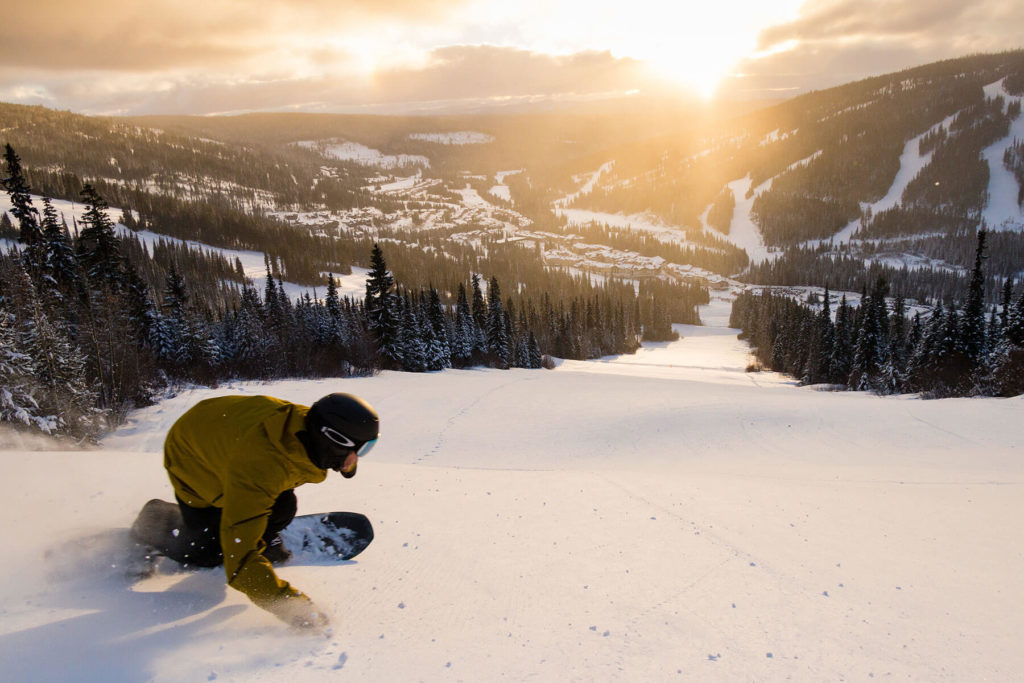
Snowboarding at Sun Peaks near Kamloops (Sun Peaks Resort)
“Should a Games Concept evolve into a successful bid, it could impact a host of government policies, including Indigenous relations, the environment, housing, economic development and others,” said Conibear’s entry in the registry.
Most 2010 venues would reprise their roles if the Games return in 2030, except snowboarding and freestyle skiing would go to Sun Peaks near Kamloops, curling at the Agrodome, and a temporary big air skiing and snowboarding ramp at Hastings Racecourse. MST Developments’ Jericho Lands or Heather Lands are proposed for a new Vancouver Olympic Village.
Whereas False Creek was the focal point for Vancouver 2010, the Vancouver 2030 hub would be Hastings Park. Nightly medal awards concerts would be held at the PNE Amphitheatre, and the official merchandise superstore, a daytime live site, cultural village and sponsor pavilions would be elsewhere on the site. The only new venue with a publicly known cost is the amphitheatre, at almost $70 million.
In early May, the IOC sent managers Mattias Kaestner and Pierre Dorsaz, along with consultant Stefan Klos, to inspect proposed venues.
The all-in cost to build and operate the Vancouver 2010 Games was as much as $8 billion, but the B.C. Auditor General never conducted a final report. The organizing committee, VANOC, was not covered by the freedom of information law and its records were transferred to the Vancouver Archives after the Games with restrictions not to open the board minutes and financial ledgers before fall 2025.
Support theBreaker.news for as low as $2 a month on Patreon. Find out how. Click here.







